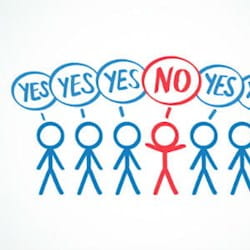DOCTORS and dentists playing music in their practices must have relevant licences or risk legal proceedings.
MDDUS has received calls from members asking what the licence requirements are for playing music in waiting areas, with reports of companies who collect royalties cracking down on unlicensed playing of music.
MDDUS Head of Dental Division, Aubrey Craig, said: "Any business that plays recorded music in public is legally required to have relevant licences – and medical and dental practices are no different.
"There are two types of licences protecting different copyright owners. Practitioners need to have both of these licences in order to have permission to play recorded music in waiting areas.
"Regardless of whether it's the radio, cd, mp3 or other form of music being played, the licences need to be paid to protect the copyright of those who create, produce and publish the music or performances."
Phonographic Performance Limited (PPL) collects and distributes licence fees for the use of recorded music on behalf of record companies and performers, while Performing Right Society (PRS for Music) collects and distributes for the use of musical compositions and lyrics on behalf of songwriters, composers and publishers.
"Both organisations are separate independent companies and, if you play music in the practice, it is likely you will need both licences," said Craig. "The Copyright, Designs and Patents Act 1998 states you need permission from the copyrighter to play music in public. Buying a cd or downloading music only allows you to play that music for domestic purposes, such as listening at home or in the car. A practice is deemed a public area and therefore further permission is required."
In 2012, there was a dispute in Italy between the owner of a private dental practice and a royalty collection agency. The Court of Justice of the European Union (ECJ) ruled that dentist’s waiting rooms in Italy did not have to be licensed by the local music collecting society for playing music. However, it was determined that the case was not applicable in UK law.
Said Craig: "Those who fail to obtain the correct licence face legal proceedings as a result of 'infringing copyright'.
"The cost of these licences can depend on several factors, such as the size of your practice and how you use recorded music in your business."
Further details can be found at the PPL and PRS for Music websites.
This page was correct at the time of publication. Any guidance is intended as general guidance for members only. If you are a member and need specific advice relating to your own circumstances, please contact one of our advisers.
Save this article
Save this article to a list of favourite articles which members can access in their account.
Save to library

